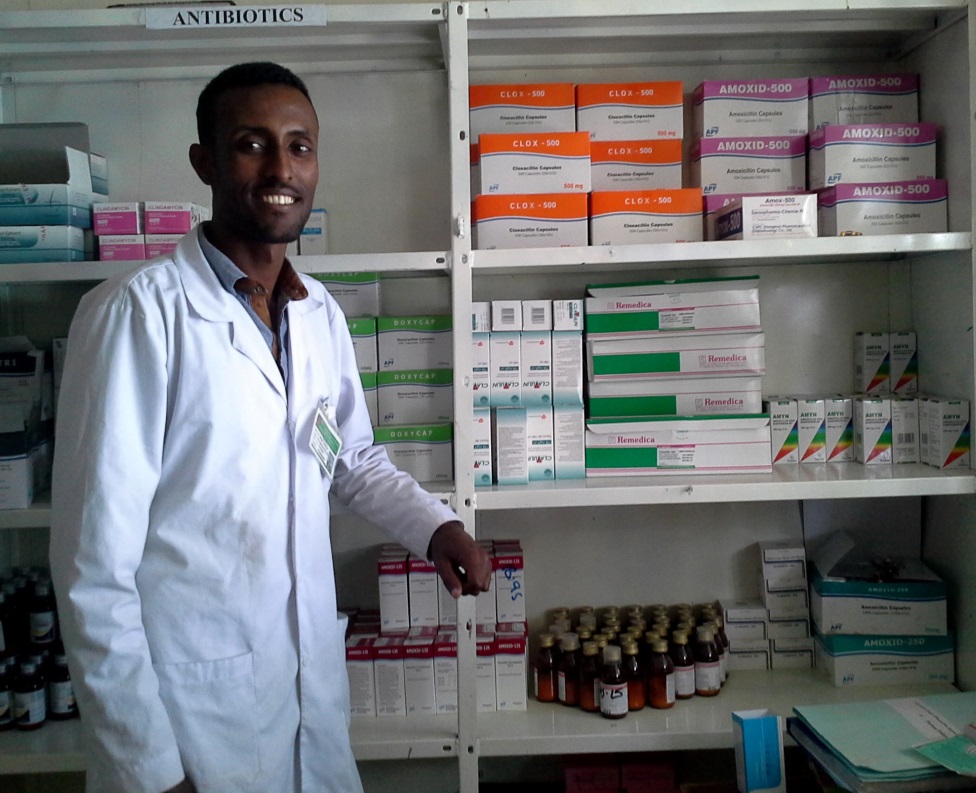An interview with Sheena Patel, technical advisor for maternal, newborn and child health activities at SIAPS The health of women and children is critical to the overall health and prosperity of a country—and the world. Can you talk a bit about why? The most obvious reason is that when women and children are healthy, they … Read more
Archive Blog
How can private medicine vendors help fight drug-resistant TB?
Tuberculosis is one of the world’s deadliest diseases, and multi-drug resistant TB has contributed significantly to the growing global threat of antimicrobial resistance. Yet in many of the countries most burdened by the disease, about half of those who have TB see private medicine vendors before any other health care professional. That can compound the … Read more
Saving the Most Vulnerable from Malaria in South Sudan
By Abraham Ayuen, Senior Communications Specialist for SIAPS South Sudan. This post originally appeared on MSH’s website. Six-year-old Yohana Peter clutched a bottle of mango juice as he waited for his medication outside a pharmacy at Al Sabah Children’s Hospital in Juba, South Sudan. Seated next to his mother on a metal bench, Yohana looked anxious. … Read more
Changing Systems to Change Lives in Ethiopia: Aster’s Story
By Tsion Issayas, Communications Manager for SIAPS Ethiopia. This post originally appeared on MSH’s website. Aster Amanuel Desalegn lives in Debre Markos, 190 miles from the Ethiopian capital of Addis Ababa. She is a 70-year-old mother of four and grandmother of two. Her granddaughters, Emuye, 6, and Blen, 8, live with her. On a trip back … Read more
Reducing Newborn and Child Deaths through Public-private Partnerships in Bangladesh
By Liza Talukder, Communications Technical Advisor and Dr. Seikh Asiruddin, Senior Technical Advisor for SIAPS Bangladesh. This post originally appeared on MSH’s website. Tama, a resident of Parokhali village in the Khulna district of Bangladesh, was devastated when her 15-day-old daughter was diagnosed with pneumonia-related complications and needed treatment, including immediate oxygen support. Following instructions from the … Read more
Blog: Transforming Pharmaceutical Services in Ethiopia
Over the past two decades, Ethiopia has improved its delivery of primary health care services and begun to make great progress toward meeting the Millennium Development Goals, particularly with regard to maternal, newborn, and child health and the prevention and control of HIV and tuberculosis. Yet pharmaceutical services—a patient’s last point of care and one … Read more
To measure progress in “pharmaceutical systems strengthening,” we must first define that term
By Helena Walkowiak, Principal Technical Advisor, SIAPS It’s been called the pharmaceutical sector, a drug supply or management system or the medical products building block. By any name, the part of a health system that deals with ensuring access to essential medicines, vaccines and medical products and their correct use–we call it a pharmaceutical system … Read more
Voices: “You can’t achieve UHC without thinking about gender”
A Q&A with Kiley Workman Diop, technical advisor for the SIAPS Program You took courses in gender studies in college. How has that shaped your work? It has shaped my work a lot! My background in public health is rooted in the social aspects of health. Social determinants like income, gender, race, class, faith, sexuality, … Read more
Blog: SIAPS Donates New Computers to Angola MOH’s New Medicines Regulatory Unit
By Wonder Goredema, Senior Technical Advisor and SIAPS Technical Support Lead/ Acting Country Project Director – Angola On September 27, 2016, Dra. Katiza Mangueira, the Head of the Angola Ministry of Health’s Directorate of Medicines and Equipment (Direcção Nacional de Medicamentos e Equipamentos [DNME]) accepted three desktop computers and power surge adaptors from the Angola … Read more
UHC Day 2016: Strong pharmaceutical management boosts access to essential medicines

By Francis Aboagye–Nyame, SIAPS Program Director On this day in 2014, the global health community made a commitment to universal health coverage (UHC) throughout the world. Although progress has been made, more than one billion people still lack access to basic health care. Further, as a Lancet Commission report, Essential Medicines for Universal Health Coverage, said … Read more


